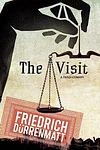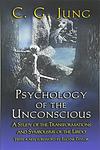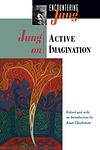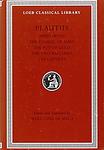The Greatest Roman, Swiss Books of All Time
Click to learn how this list is calculated.
This list represents a comprehensive and trusted collection of the greatest books. Developed through a specialized algorithm, it brings together 305 'best of' book lists to form a definitive guide to the world's most acclaimed books. For those interested in how these books are chosen, additional details can be found on the rankings page.
Genres
Countries
Date Range
Reading Statistics
Click the button below to see how many of these books you've read!
Download
If you're interested in downloading this list as a CSV file for use in a spreadsheet application, you can easily do so by clicking the button below. Please note that to ensure a manageable file size and faster download, the CSV will include details for only the first 500 books.
Download-
26. Germania by Cornelius Tacitus
"Germania" is a historical and ethnographic work that provides a detailed description of the lands, customs, and tribes of the Germanic people in the first century AD. The author, a Roman historian and senator, offers a comprehensive account of the geography, anthropology, social institutions, and military practices of the Germanic tribes, often comparing their culture and values to those of the Romans. The work is considered a valuable source of information about the ancient Germanic tribes, despite its possible biases and inaccuracies.
The 2344th Greatest Book of All Time -
27. Titi Livi Ab urbe condita libri by Livy
This historical work offers a comprehensive narrative of the history of Rome, from its mythical origins to the reign of the Roman Emperor Augustus. The author chronicles the major political, military, and social events of the Roman Republic, including the founding of the city, the establishment of the Republic, the Punic Wars, and the rise of Julius Caesar. The book is a significant source of information about the early history of Rome and is often considered one of the most important works of Roman history.
The 2411th Greatest Book of All Time -
28. The Black Spider by Jeremias Gotthelf
"The Black Spider" is a chilling and haunting tale set in a small Swiss village. It tells the story of a pact made with the devil by the villagers' ancestors, resulting in a curse that manifests in the form of a black spider. As the spider spreads terror and death, the villagers must confront their own sins and grapple with the consequences of their forefathers' actions. This dark and atmospheric novella explores themes of guilt, redemption, and the destructive power of evil.
The 2411th Greatest Book of All Time -
29. The Judge and His Hangman by Friedrich Dürrenmatt
This book is a crime novel set in Switzerland, where a police lieutenant is tasked with solving the murder of his former colleague. The narrative explores themes of justice, revenge, and the blurred lines between good and evil. The lieutenant, despite being terminally ill, is determined to solve the case and in the process, he uncovers a web of corruption and deceit that forces him to question his own morality and the nature of justice. The story is a philosophical examination of the criminal justice system and the moral dilemmas faced by those who enforce the law.
The 2454th Greatest Book of All Time -
30. Love in the Western World by Denis de Rougemont
The book is an in-depth exploration of the concept of love as it has evolved in Western society, tracing its development from the myth of Tristan and Iseult to modern times. The author argues that the idea of passionate, romantic love that is prevalent in the West is fundamentally a form of destructive passion, often leading to pain and tragedy. The book also delves into the socio-cultural aspects of love, examining how societal norms and expectations shape our understanding and experience of love.
The 2712th Greatest Book of All Time -
31. Poetry by Quintus Lutatius Catulus
This book is a collection of ancient Roman poetry by a renowned statesman and poet. The poems reflect the author's experiences, thoughts, and feelings about life, love, politics, and society during the Roman Republic era. The author's eloquent and vivid writing style, combined with his astute observations and insights, make this book a valuable resource for understanding Roman culture and history.
The 2849th Greatest Book of All Time -
32. Attis And Other Poems by Catullus
"Attis and Other Poems" is a collection of lyrical works that delve into themes of love, desire, and personal anguish. The poems are characterized by their emotional intensity and vivid imagery, often reflecting the poet's own tumultuous love affairs and inner turmoil. The titular poem, "Attis," stands out with its mythological narrative and exploration of themes such as identity and transformation. Throughout the collection, the poet's mastery of language and form is evident, as he skillfully weaves together personal experiences with broader reflections on human nature and the complexities of the human heart.
The 2903rd Greatest Book of All Time -
33. Catiline Orations by Marcus Tullius Cicero
"Catiline Orations" is a series of speeches given by a renowned Roman statesman, which were aimed at exposing and condemning the conspiracy led by Lucius Sergius Catilina. The speeches, delivered in the Roman Senate, are a masterful display of oratory skills and political acumen, as the statesman successfully manages to turn the Senate against Catiline, ultimately leading to his downfall. The book offers an in-depth study of these speeches, providing valuable insights into Roman politics, rhetoric, and the art of persuasion.
The 3100th Greatest Book of All Time -
34. Mars by Fritz Zorn
"Mars" is a poignant autobiographical account of a young man's life and his battle with terminal cancer. The narrative delves into the author's affluent yet emotionally barren upbringing in a Swiss suburb, which he refers to as "Mars," symbolizing its cold and alienating environment. The book is a critique of his repressive bourgeois society, which he believes contributed to his psychological and physical illness. Through introspective and often angry prose, the author explores themes of alienation, the search for identity, and the impact of societal norms on individual well-being. His struggle is not only against the disease but also against the cultural and familial constraints that stifled his emotional development.
The 3165th Greatest Book of All Time -
35. Grid Systems In Graphic Design by Josef Müller-Brockmann
This book is a seminal guide to graphic design and typographic composition, focusing on the use of grid systems as a foundational tool for ensuring visual coherence and hierarchy across various design projects. It provides designers with a methodical approach to organizing text and images in a clean, logical, and aesthetically pleasing manner. Through systematic arrangement, the grid serves as an essential framework that can be applied to a wide range of design work, from print media to digital interfaces. The book delves into the principles, applications, and benefits of grid systems, offering practical advice, examples, and clear illustrations to help designers harness the power of grids to create effective, impactful visual communications.
The 3172nd Greatest Book of All Time -
36. Natural History by Pliny (the Elder)
"Natural History" is an extensive work of literature that provides a comprehensive look at the knowledge of the natural world during the Roman era. The book is divided into 37 volumes, each focusing on different aspects such as geography, anthropology, zoology, botany, and mineralogy. The author's curiosity and fascination with the world are evident in his detailed observations and descriptions. The book also includes discussions on art, sculpture, and various other topics, providing a rich and detailed snapshot of the Roman understanding of the world.
The 3209th Greatest Book of All Time -
37. The Consolation of Philosophy by Boethius
"The Consolation of Philosophy" is a philosophical work written in the 6th century, where the author, imprisoned and awaiting execution, engages in a series of dialogues with Lady Philosophy about the nature of life and human happiness. The author grapples with the harsh realities of his own life, including his fall from favor, his unjust imprisonment, and impending execution. Through these dialogues, the author learns to understand life from a philosophical and spiritual perspective, finding consolation and peace amidst his dire circumstances. The work is a profound meditation on fate, free will, time, and eternity.
The 3469th Greatest Book of All Time -
38. On Obligations by Marcus Tullius Cicero
"On Obligations" is a philosophical treatise that explores the ethical and moral duties of individuals in society. Written in the form of a dialogue, the text delves into the nature of justice, the importance of the common good, and the role of virtue in personal and public life. The author articulates a framework for understanding and fulfilling one's obligations, which he argues are derived from both natural law and human reason. Through a detailed examination of various ethical dilemmas and practical situations, the work provides insights into how individuals should act with integrity and wisdom to uphold both legal and moral responsibilities.
The 3802nd Greatest Book of All Time -
39. Psychology of the Unconscious by Carl Jung
"Psychology of the Unconscious" is a pioneering work that explores the complex landscape of the human unconscious, introducing theories that would later become central to understanding personality and human psychology. The book delves into the idea of the collective unconscious, archetypes, and the process of individuation. It further discusses the role of dreams, myths, and symbols in understanding and interpreting the unconscious mind. The author uses case studies and examples from various cultures to support his theories, offering a comprehensive view of the human psyche.
The 4162nd Greatest Book of All Time -
40. Judgement and Reasoning in the Child by Jean Piaget
This book is a seminal work in the field of child psychology, exploring the ways in which children develop their cognitive abilities and reasoning skills. The author delves into the mental processes of children, focusing on how they form judgments, understand cause and effect, and develop logical thinking. The book also discusses the stages of cognitive development, highlighting the shift from intuitive to logical thinking. This influential work has greatly contributed to our understanding of child development and education.
The 4162nd Greatest Book of All Time -
41. Man and His Symbols by Carl Jung
This book is a comprehensive introduction to the world of depth psychology, exploring the significance of dreams, art, and symbols in everyday life. The author and his colleagues delve into the unconscious mind, discussing its influence on our thoughts, behaviors, and experiences. The book emphasizes the importance of understanding and interpreting symbols as a means to gain insights into our unconscious motivations, fears, and desires. It also discusses the role of archetypes and collective unconscious in shaping human behavior and culture.
The 4699th Greatest Book of All Time -
42. On The Ends Of Good And Evil by Marcus Tullius Cicero
"On the Ends of Good and Evil" is a philosophical work that explores the ethical theories of Hellenistic schools, including Stoicism, Epicureanism, and the Peripatetic tradition. Through a series of dialogues, the text delves into the nature of happiness and the ultimate end of human action, examining what constitutes the highest good. The author critiques and compares the doctrines of these schools, ultimately defending the Stoic view that virtue is the sole basis of happiness and the ultimate goal in life, while also acknowledging valuable insights from other philosophical traditions.
The 4699th Greatest Book of All Time -
43. The Course In General Linguistics by Ferdinand de Saussure
"The Course in General Linguistics" is a foundational text in the field of linguistics that outlines the principles of structural linguistics and introduces key concepts such as the linguistic sign, the distinction between langue (language as a system) and parole (language as used in context), and the idea of synchronic versus diachronic analysis. The work emphasizes the arbitrary nature of the sign, which consists of the signifier (the form of the word or phrase) and the signified (the conceptual meaning). This book, compiled from notes by students from the lectures given by its author, has had a profound impact on the development of linguistic theory and has influenced various other disciplines, including anthropology, psychology, and literary theory.
The 5535th Greatest Book of All Time -
44. The Civilization Of The Renaissance In Italy by Jacob Burckhardt
"The Civilization of the Renaissance in Italy" is a seminal work that explores the Italian Renaissance from the 14th to the 16th century, a period marked by significant cultural, artistic, and political developments. The book delves into the revival of antiquity, the rise of individualism, and the secularization of society, examining how these factors influenced the transformation of various aspects of Italian life, including art, politics, and religion. Through a detailed analysis of the period, the author illustrates how the Renaissance represented a break from the traditions of the Middle Ages and laid the groundwork for the modern age.
The 5535th Greatest Book of All Time -
45. The Visit by Friedrich Dürrenmatt
The narrative revolves around the return of a wealthy woman to her impoverished hometown, where she offers the residents a disturbing proposition: a vast fortune in exchange for the life of the man who wronged her in her youth. As the townspeople's initial horror gives way to the corrupting influence of the promised wealth, moral integrity collapses, leading to a dark and cynical exploration of human nature, justice, and revenge. The story serves as a powerful commentary on the capacity for greed to erode community values and the price of justice in a world governed by materialism.
The 5757th Greatest Book of All Time -
46. Two Essays on Analytical Psychology by Carl Jung
This book contains two comprehensive essays that delve into the depths of analytical psychology. The first essay explores the role of the unconscious in the human psyche, discussing its influence on dreams, mythology, and mental illnesses. The second essay delves into the process of individuation, which is the psychological process of integrating the conscious and unconscious parts of the mind to achieve self-actualization. This work is a foundational text in understanding the theories and concepts of analytical psychology.
The 5758th Greatest Book of All Time -
47. Thyestes by Seneca
"Thyestes" is a classic tragedy that centers around the mythological figures of the House of Atreus. The story unfolds as Atreus, the King of Mycenae, seeks revenge on his brother Thyestes for committing adultery with his wife. In a gruesome act of vengeance, Atreus kills Thyestes' sons and serves them to him at a feast. The narrative explores themes of power, betrayal, revenge, and the horrific consequences of unchecked ambition.
The 5758th Greatest Book of All Time -
48. Amphitryon by Plautus
The play is a comedic tale set in ancient Greece, where the god Jupiter, enamored with Alcmena, the wife of the general Amphitryon, takes on her husband's form to seduce her while Amphitryon is away at war. Meanwhile, Mercury, the messenger god, assists Jupiter by disguising himself as Amphitryon's slave, Sosia. The resulting confusion and mistaken identities lead to a series of humorous situations, as the real Amphitryon returns home to find his place usurped by the god. The play explores themes of deception, infidelity, and the interplay between gods and mortals, all wrapped up in a farcical package that entertains while it provokes thought about the nature of identity and trust.
The 5919th Greatest Book of All Time -
49. The Portable Jung by Carl Jung
"The Portable Jung" is a comprehensive collection that encapsulates the core ideas of analytical psychology, as developed by its founder. The book offers a selection of writings that delve into the concepts of the collective unconscious, archetypes, dreams, and individuation. It serves as an accessible introduction to Jung's transformative ideas on the psyche, providing readers with insights into the depths of human behavior and the psychological underpinnings that influence personal growth and understanding. This compilation not only highlights Jung's profound influence on psychology but also his interdisciplinary reach into areas such as mythology, religion, and culture.
The 6325th Greatest Book of All Time -
50. Catiline's War, The Jugurthine War, Histories by Sallust
This book is a combination of three works by a Roman historian and politician, focusing on the political and military events of the late Roman Republic. It first covers the conspiracy led by Catiline in 63 BC, then shifts to the war against Jugurtha in North Africa, and finally provides a fragmentary history of Rome from 78-67 BC. The author uses these events to critique the moral decay of Rome, highlighting the corruption, greed, and ambition that he believed led to the fall of the Republic.
The 6533rd Greatest Book of All Time
Reading Statistics
Click the button below to see how many of these books you've read!
Download
If you're interested in downloading this list as a CSV file for use in a spreadsheet application, you can easily do so by clicking the button below. Please note that to ensure a manageable file size and faster download, the CSV will include details for only the first 500 books.
Download





















